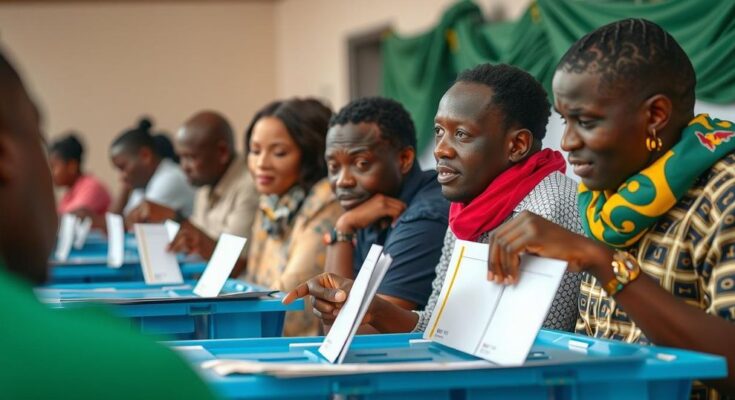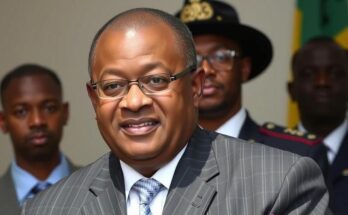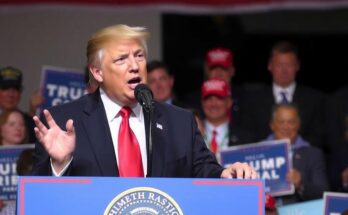Ghana is holding elections to elect a new president as Nana Akufo-Addo steps down after two terms. Key candidates include former President John Mahama and Vice-President Mahamudu Bawumia. With a focus on economic issues, particularly inflation and unemployment, about 19 million Ghanaians are registered to vote in this pivotal election, which could reshape the nation’s future.
Election day has arrived in Ghana, marking a pivotal moment for the West African nation as it seeks to address its pressing economic challenges amidst a debt crisis and rising living costs. Voters are guaranteed a new president with Nana Akufo-Addo stepping down after completing his two-term limit. Former President John Mahama is making a comeback attempt as the candidate for the National Democratic Congress (NDC), while Vice-President Mahamudu Bawumia is vying for the governing New Patriotic Party (NPP), with the potential to become the nation’s first Muslim leader if successful. Other candidates include businessman Nana Kwame Bediako and Alan Kyerematen, who recently left the NPP.
Approximately 19 million Ghanaians are registered to vote across 275 constituencies. The elections are occurring despite recent efforts to increase women’s representation in politics; the only female candidate, Akua Donkor, passed away in October, yet her name remains on the ballot due to the disqualification of her successor. The voting process will span ten hours, from 07:00 GMT to 17:00 GMT, and results are expected within three days. Presidential candidates must secure over 50% of the votes to win outright; otherwise, a run-off will be necessary.
During the final days of campaigning, Mahamudu Bawumia asserted, “What is clear is that notwithstanding the challenges we’ve had, we have performed better than the government of John Dramani Mahama.” In contrast, Mahama emphasized, “It is a choice between the Ghana we have today and the Ghana we want together. A Ghana of opportunity, prosperity, and justice for all.” Issues surrounding inflation, currently affecting living standards, as well as rising youth unemployment, are contributing significantly to voters’ concerns. The World Bank highlighted that inflation peaked at 54.1% in 2022, which has pushed many citizens into poverty. The government is still navigating extensive negotiations with international lenders to restructure its debt obligations.
Overall, the outcome of the elections will substantially influence Ghana’s trajectory in the coming years, especially in light of the economic hardships currently faced by the populace.
Ghana is currently facing significant economic difficulties characterized by high inflation and a debt crisis. These issues have greatly impacted living standards and have pushed many citizens into poverty. Historically, Ghana has witnessed a two-party system since reinstating multi-party politics in 1992, with typically the NDC and NPP being the dominant parties. Recent initiatives aimed at increasing female representation in politics have been challenged by the unfortunate passing of the only female presidential candidate for this election, Akua Donkor. As the nation prepares for its elections, the stakes are high regarding economic stability, governance, and representation.
In conclusion, the upcoming elections in Ghana represent a crucial turning point for the nation, as a new president will be elected amidst significant economic challenges. The rivalry between seasoned politicians, coupled with pressing issues such as inflation and unemployment, will likely influence voter turnout and decision-making. The implications of these elections are profound, likely determining Ghana’s political direction and economic strategies for years to come.
Original Source: www.bbc.com




